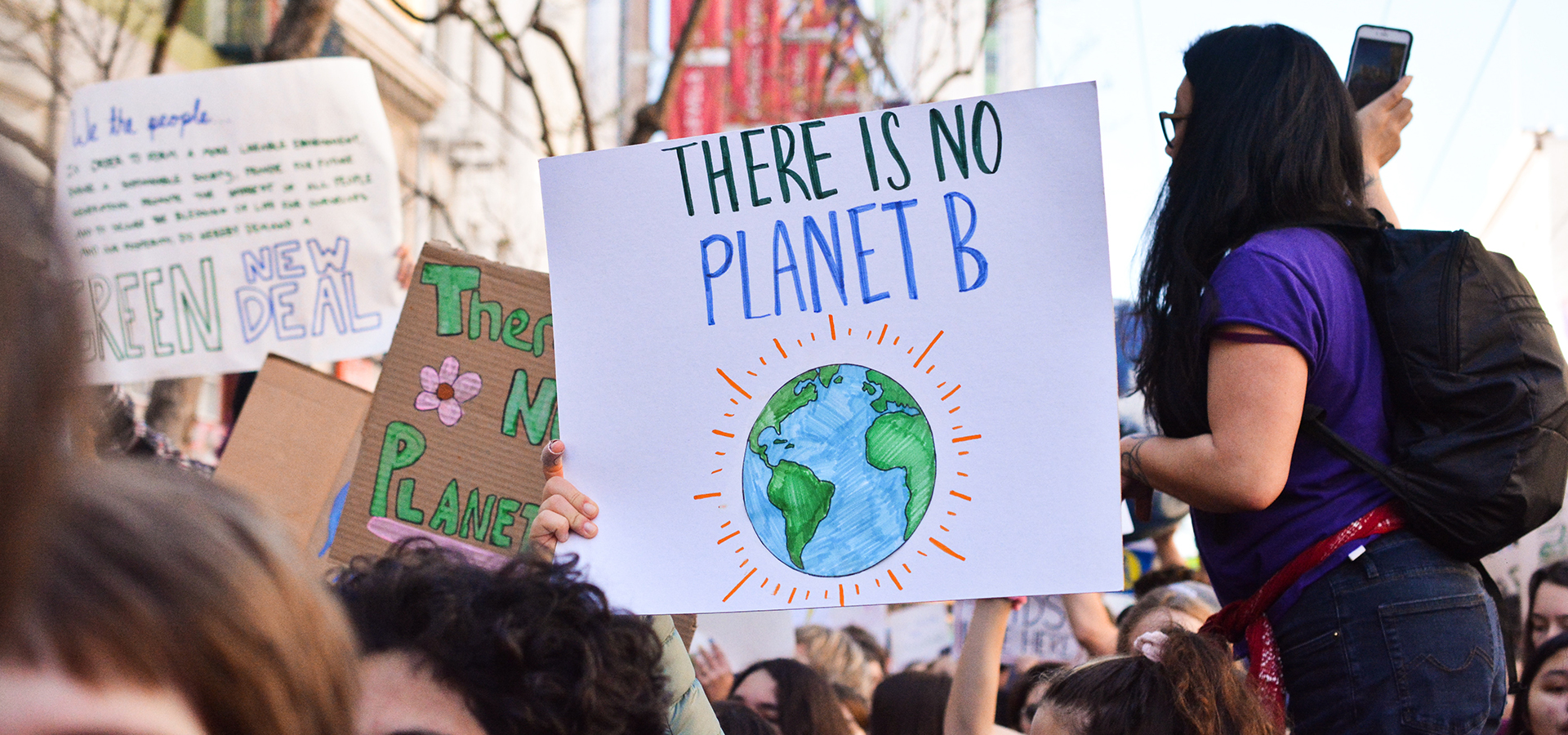
How Brands that Take a Stand Can Help Consumers with Climate Anxiety
My morning ritual usually begins with a cup of dark roasted coffee and a skim of my news feeds. Today was no different. Jumping through my usual assortment of climate stories and was reading a terrific article Human Civilization Isn’t Prepared to Survive Climate Change. I don’t usually notice the source until the end of the article, but today I had to check twice. The magazine where men can learn about how to get that perfect not shave-shave, or what is in Ryan Gossling’s smoothie, the latest Air Jordans—nestled between the perfect slim fit jeans and cashmere turtlenecks, in the culture section, was a story about impacts of the climate crisis. Yes, the source was GQ. I had to check three times. If ever there were a harbinger of how fully The Climate Crisis has been adopted by mainstream society, I was looking at it.
The conversation is officially mainstream.
As the media moves from calling it climate change to climate crisis and fashion magazines talk about the topic in articles—it seems that what once was debated the future, was here. Causing, what therapists are calling ‘Climate Anxiety’: a sense of fear related to the possible effects of the changes to the climate. It may be attributed to a firsthand experience with a climate-related disaster like the Paradise Fire or the Colorado floods of 2013, or related to the fear of the future, or the grief due to the loss of ecosystems. “Climate anxiety is a relatively recent phenomenon, but the concern is spreading. A Yale survey in December found nearly 70% of Americans are ‘worried’ about climate change, 29% are ‘very worried’ — up eight percentage points from just six months earlier — and 51% said they felt ‘helpless.’ ‘Historians will say that groups of people have faced very difficult, tumultuous times,’ says CPA’s Janet Lewis, who has a private practice near Ithaca, New York. ‘But human beings have never faced this before.’”
Anxiety is heightened when faced with a fearful situation that can’t be acted upon.
People want to do something about the climate crisis. Most people don’t have the means, the time or the luxury to immediately install solar panels, buy an electric car, or give up the car, or not run the air conditioner in the summer (and you may have noticed – it is getting hotter). They feel helpless waiting for the government to do something.
Every single day people have a chance to vote as they vote with their money.
Someone asked me who was the MOST, the BEST-EST sustainable company out there. I was stumped. I do this for a living. I rattled off companies who are doing good things, but who is the ABSOLUTE, best of the best in sustainability? I couldn’t wholeheartedly answer.
So, people are, every day looking for companies to act on their behalf and want to support brands not only taking a stand, but leading in climate change, and I can’t think of best in class brands? The top of the charts?
An amazing opportunity that is being missed.
The situation reminds me of intermittent windshield wipers. For those of us old enough to remember what it was like to drive when it was drizzling before intermittent wipers, we had to tap move the wiper controls like a metronome to find that balance between sight and windshield squeak. And then, we experienced it, intermittent. Or even better, sensing windshield wipers. THEY KNEW WHEN IT RAINED! There it was, driver delight. I didn’t know I could no longer live without smart windshield wipers. But, as I driver, I now expect this function. My smart wipers no longer bring me delight and I expect every car I drive to have this technology and in fact I will be dissatisfied if I don’t have it.
What does this have to do with climate change?
Consumers are seeking brands to be a proxy for individual actions and address the climate crisis. When they can’t personally take action on climate change, they expect their brands to make a difference–to reduce their anxiety, knowing that they voted with their purchase. The companies that authentically rise and lead with climate action will be able to secure new markets and provide an emotional connection with their existing customers. Knowing that a favorite brand is Climate Neutral, or is powered by 100% renewable energy or is a B Corporation sends not only a message, but provides solutions. Companies who do not lead will face reactionary requirements that will quickly be put in place in the wake of other’s actions.
There is an urgent and expressed market opportunity to strengthen the bonds between consumer and brand and keep customers delighted and to maintain a planet on which to experience all that delight.


Uncommon Person: Chad Hutson

Our Internal Learning & Impact at Bulldog Drummond

The One Decision by Employers in 2021 that Means Everything

What I Wish I Knew

Standing Up Inside

Uncommon Person: Gregg Imamoto

Five Things Every Company Should Know about ESG

Redefining Value

Uncommon Person: Chris Baréz-Brown

It’s Time For A Whole Lotta Common Good

Did You Choose Humanity?

Uncommon Partnership: Violux

Here’s How

Uncommon Person: Santhosh Nair

Designing Strategy For A Complex World

Responsibility & Relevance for Brands

